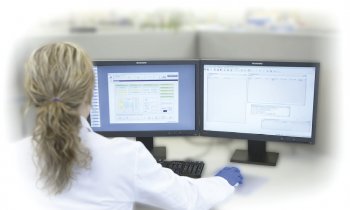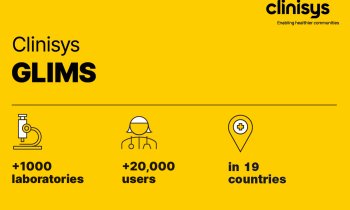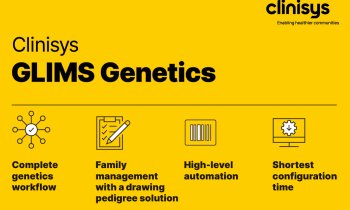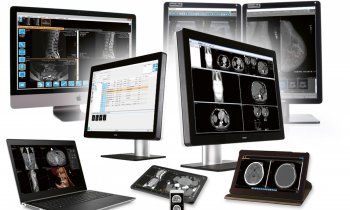Speeding up health-care administration
Check-in kiosks plus
80 million electronic
health insurance cards to be deployed
Human interaction is of the utmost importance in healthcare services, but with ever-increasing demands on tight budgets, which increase pressures on staff and service levels, it's high time that self-service stepped in to lend a hand.
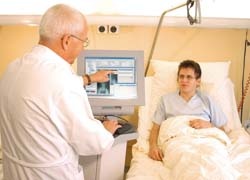
A very important goal of the healthcare kiosk is to give patients more control over their health care; for example, keeping track of physician referrals and noting upcoming check-ups and test dates that they need to attend. Self-service in healthcare is certainly not about replacing human interactions, but is about streamlining the essential administrative processes to enhance the customer experience and leave healthcare specialists with more time for patient care.
In the US, where healthcare is a business rather than a government-provided service, self-service has already been greeted with enthusiasm by healthcare institutions as a means of cutting costs, improving service and eliminating errors. Newark Beth Israel Medical Centre, an affiliate of the Saint Barnabas Health Care System, recently deployed self-service technology in its emergency department to prioritise treatment based on medical urgency. The kiosk helps hospital staff better manage patient flows by flagging up the patients with the most immediate needs.
Elsewhere, the Florida Hospital Fish Memorial, in Orange City, recently installed three check-in kiosks to reduce waiting times in out-patient registration and surgical services. Patients can check in quickly, without having to wait to see a registrar, and are also given a chance to review and correct their patient data at the kiosk, so achieving higher accuracy in the hospital data about their patients.
A new trial is also being run at the Hillsboro Medical Centre in Illinois, where a kiosk enables patients to sign in using an integrated biometric palm scanner, as well as interact with the touchscreen to verify their data and make further appointments.
Europe is a more challenging market for self-service healthcare providers, as every country has its own system. In the UK, for instance, treatment is free for the entire population through the National Health Service, whereas in Germany health insurance is mandatory. The new German e-health card will be carried by every citizen and be used to generate a link between the health insurance company and the pharmacy or doctor. In this generation of a link there are obvious problems of confidentiality and security of data, which is one of the reasons why self-service is such a good option. Kiosks mean that citizens have exclusive access to and control of their own data, so that they can make decisions such as what information is made available to the emergency services, what their organ donation preference is, or what conditions they wish their doctor to know about.
This is one of the largest IT projects worldwide, with a planned deployment of more than 80 million electronic health insurance cards. Since the government has specified that every card of these 80 million should carry an image of the bearer, this is another area where self-service can step in to help. Self-service photo-kiosks can be programmed to take images and then compare them to the required format that the government has specified and, if the image is not suitable, they simply take another there and then. The alternative process of submitting images for approval to a central office, having them manually checked and then returned if they are not suitable, is clearly far more inefficient and almost impossible with such a high volume.
Self-service manufacturers and suppliers are already producing kiosks for healthcare – for pharmacies, surgeries and hospitals – which can deliver a better patient service, enhance the patient experience and free up medical staff from more routine tasks to look after the patient’s health.
01.03.2009






